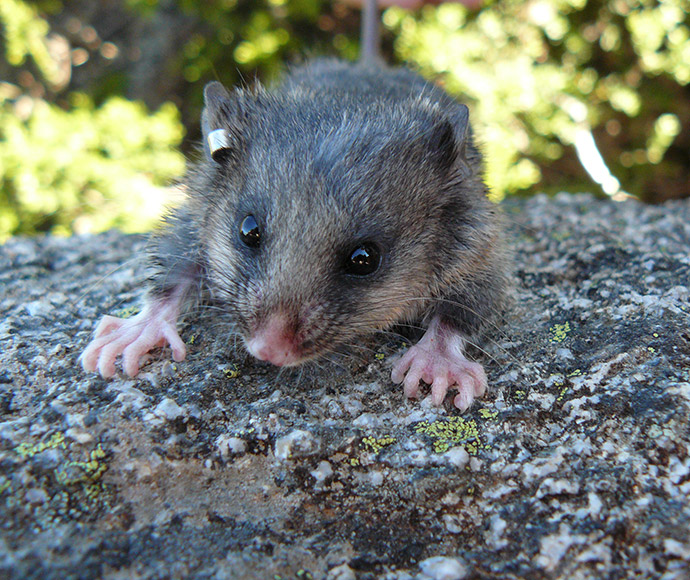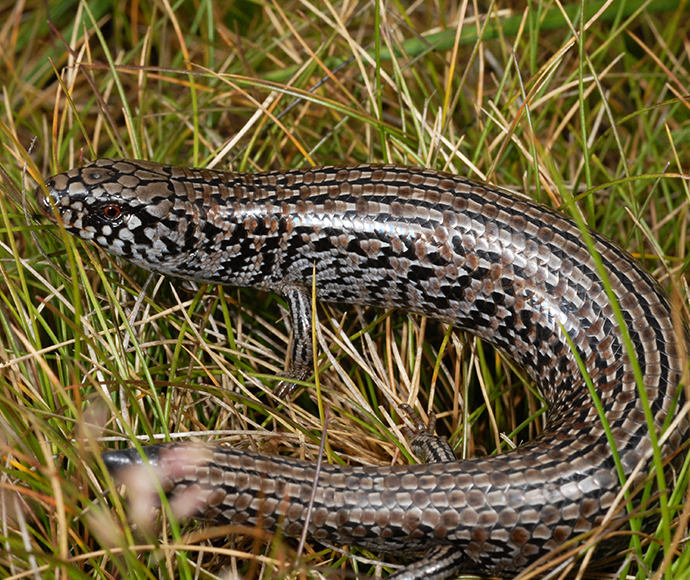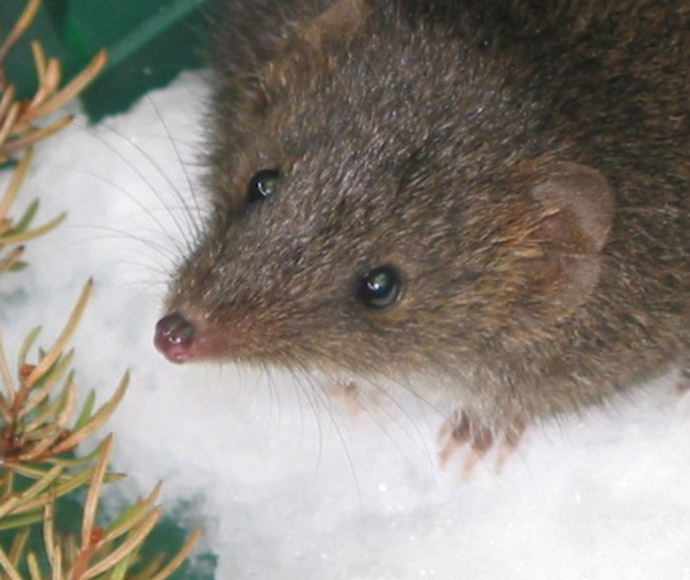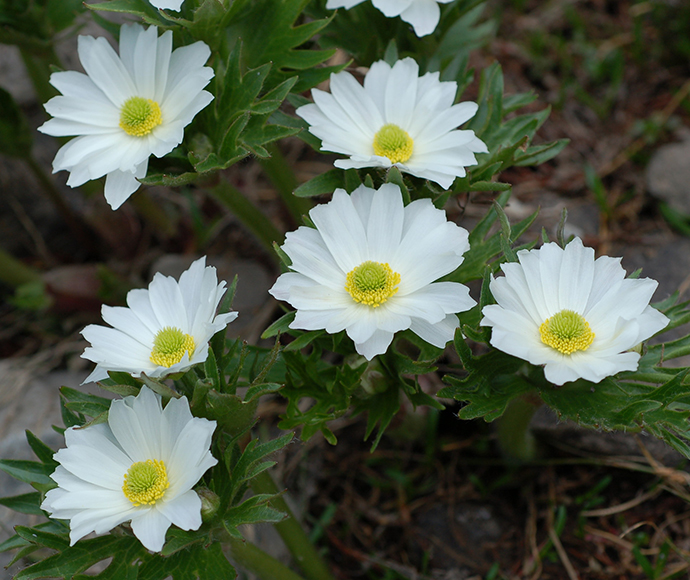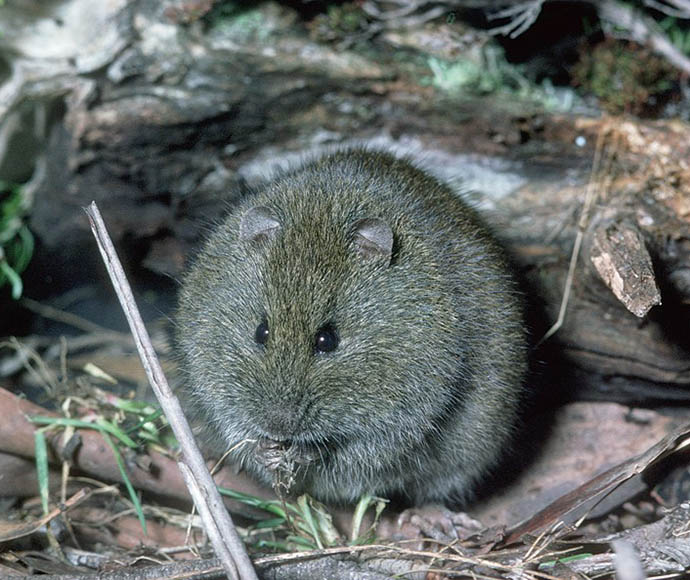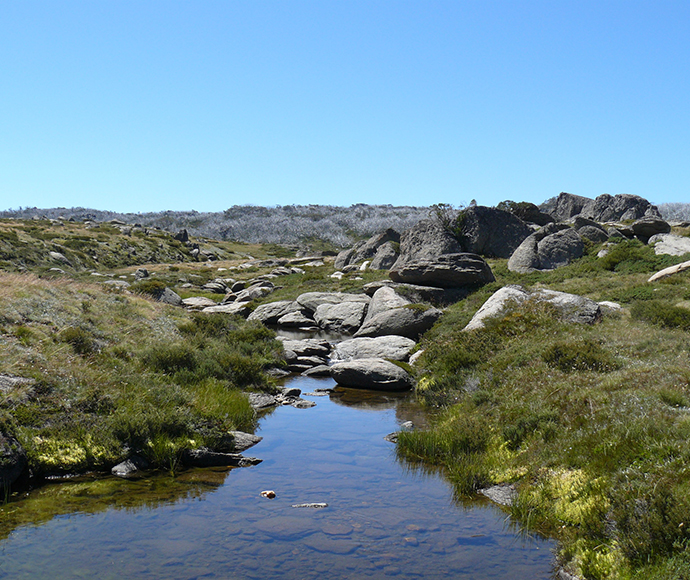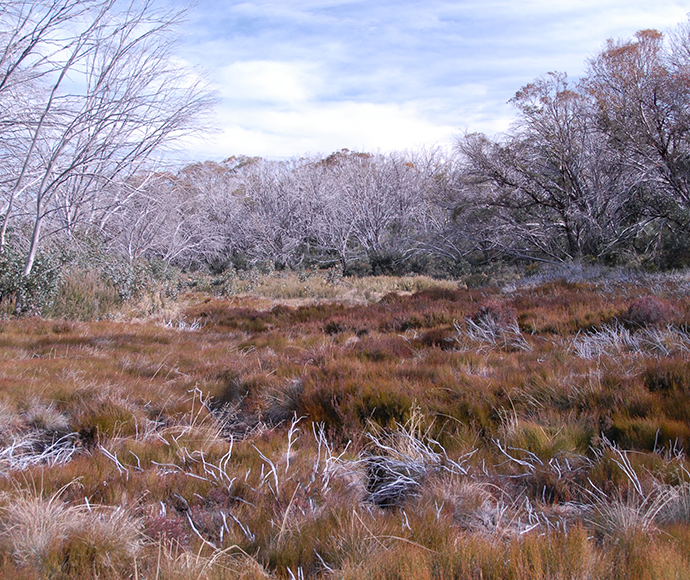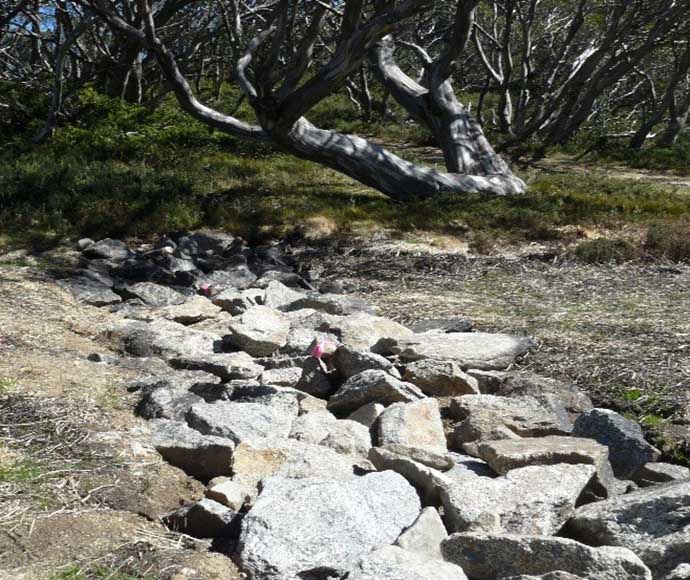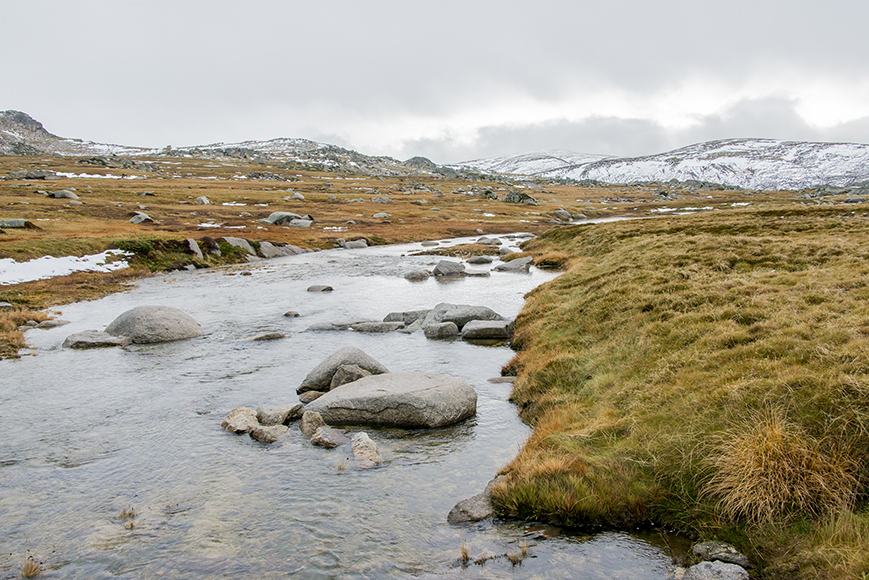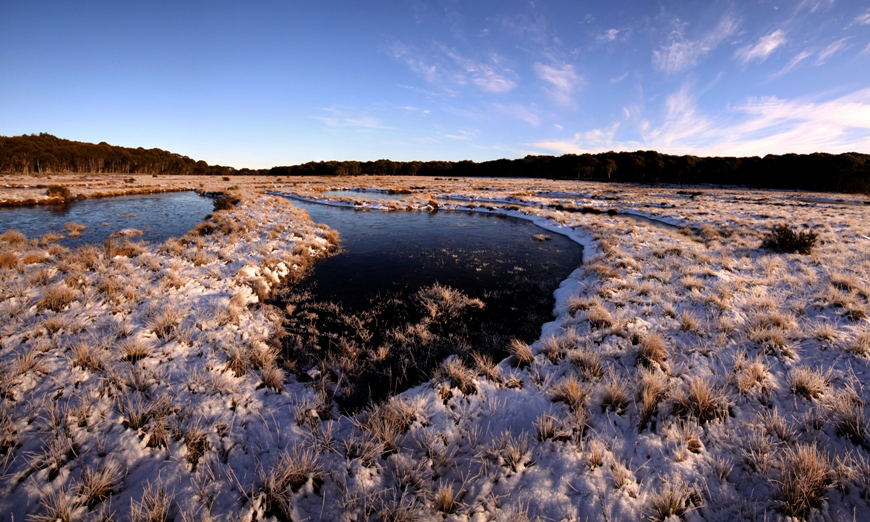Native animals
Kosciuszko National Park is home to a vast array of native plants and animals, and native vegetation in ski resorts provides habitat for many animals.
Animals living in alpine areas have adapted uniquely to their environment, surviving in the winter months through hibernation, seasonal migration and living under the snow.
Mammals that live in resort areas include:
- mountain pygmy-possum (Burramys parvus)
- broad-toothed rat (Mastacomys fuscus)
- dusky antechinus (Antechinus swainsonii).
There are also unique alpine skinks, such as the alpine she-oak skink (Cyclodomorphus praealtus) and Guthega skink (Liopholis guthega).
It's not uncommon to come across native animals in lodges and other buildings within the resort areas of Kosciuszko National Park. Find out what you can do about visiting wildlife in alpine resorts.
Wildlife crossings and artificial boulder field habitats create movement corridors across ski slopes and under roads for small mammals.
The National Parks and Wildlife Service (NPWS) also carries out revegetation programs using endemic plants species to restore habitat for native species.
Native plants
NSW alpine resorts are home to regionally and nationally significant native plant communities, mainly in alpine and sub-alpine areas. These plant communities include:
- tall alpine herb field
- short alpine herb field
- dry heath
- wet heath
- bog and fen (national and state Endangered Ecological Community)
- sub-alpine woodland.
Many contain plant species that can only be found in Kosciuszko National Park, such as:
- Kosciuszko buttercup (Ranunculus anemoneus)
- Vickery's grass (Rytidosperma vickeryae)
- Phebalium (Nematolepis ovatifolia).
For assistance with a wildlife issue
NPWS Resorts Environmental Liaison Officer
Phone: 02 6450 5616
Mobile: 0418 689 250
Email: [email protected]
